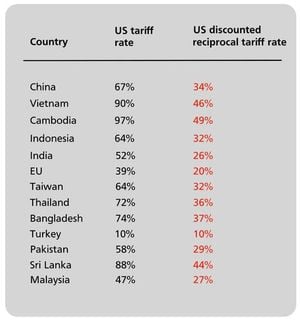On April 1, 2025, the Dutch Parliament faced a contentious decision regarding prison overcrowding, voting narrowly to maintain a controversial plan that allows certain categories of prisoners to be released up to two weeks early. This decision comes amid a severe shortage of cell space in the country’s correctional facilities.
Junior Justice Minister Ingrid Coenradie, representing the far-right Party for Freedom (PVV), described the measure as "rotten," yet felt compelled to proceed due to the dire circumstances of overcrowding in prisons. The vote saw 75 MPs against the motion to halt the plan, while 74 voted in favor of stopping it, allowing Coenradie to continue with her proposal despite dissent from several coalition parties.
The vote was particularly significant due to the heated discussions leading up to it. PVV leader Geert Wilders had initially threatened to withdraw support from Coenradie over the proposal, which had sparked intense debate within his party. However, he later softened his stance, stating, "We are not going to send her home. She does a good job but on this point we disagree." This reflects the internal tensions within the PVV regarding the handling of prison issues.
The PVV has suggested solutions to the overcrowding crisis, including the creation of more multiple-occupancy cells. In contrast, the right-wing liberal party, VVD, has proposed the introduction of prison ships as a means to alleviate the situation. These discussions highlight the urgency of addressing the prison population, which currently sits at a staggering 99.5% occupancy rate.
In response to the growing crisis, Coenradie is also planning to build two emergency prisons equipped with basic facilities. She has indicated that addressing the lack of cells and personnel will require "hundreds of millions" of euros, a significant financial commitment given that 26 jails have closed in the past decade and hundreds of prison officers have left their positions.
The issue of prison overcrowding in the Netherlands has reached a critical point, with the government struggling to find effective solutions. The recent vote reflects not only the challenges faced by the justice system but also the political complexities surrounding the issue. The decision to allow early releases is seen as a temporary fix to a systemic problem that requires long-term strategies.
In recent weeks, the debate over Coenradie’s proposal intensified, particularly following an earlier vote that resulted in a tie, necessitating a second vote on April 1. The initial count on that day revealed 74 votes in favor of halting the plan and 75 against, which led to some unrest in the Chamber due to discrepancies in expected attendance. Parliament Chairman Martin Bosma acknowledged a mistake regarding the number of members present but decided against a re-vote, asserting that the outcome would not change even if the vote were repeated.
As the situation develops, the proposals put forth by Coenradie and her colleagues will continue to be scrutinized. The PVV's call for more multiple-occupancy cells and VVD's suggestion for prison ships represent just a few of the potential solutions being considered. However, the effectiveness of these measures remains to be seen, particularly as the government grapples with the broader implications of prison overcrowding.
In conclusion, the decision to allow early prisoner releases reflects the urgent need to address the challenges of prison overcrowding in the Netherlands. With the current occupancy rate at nearly full capacity, the government faces mounting pressure to implement effective and sustainable solutions. As discussions continue, the balance between public safety and humane treatment of prisoners will undoubtedly remain at the forefront of political discourse.





